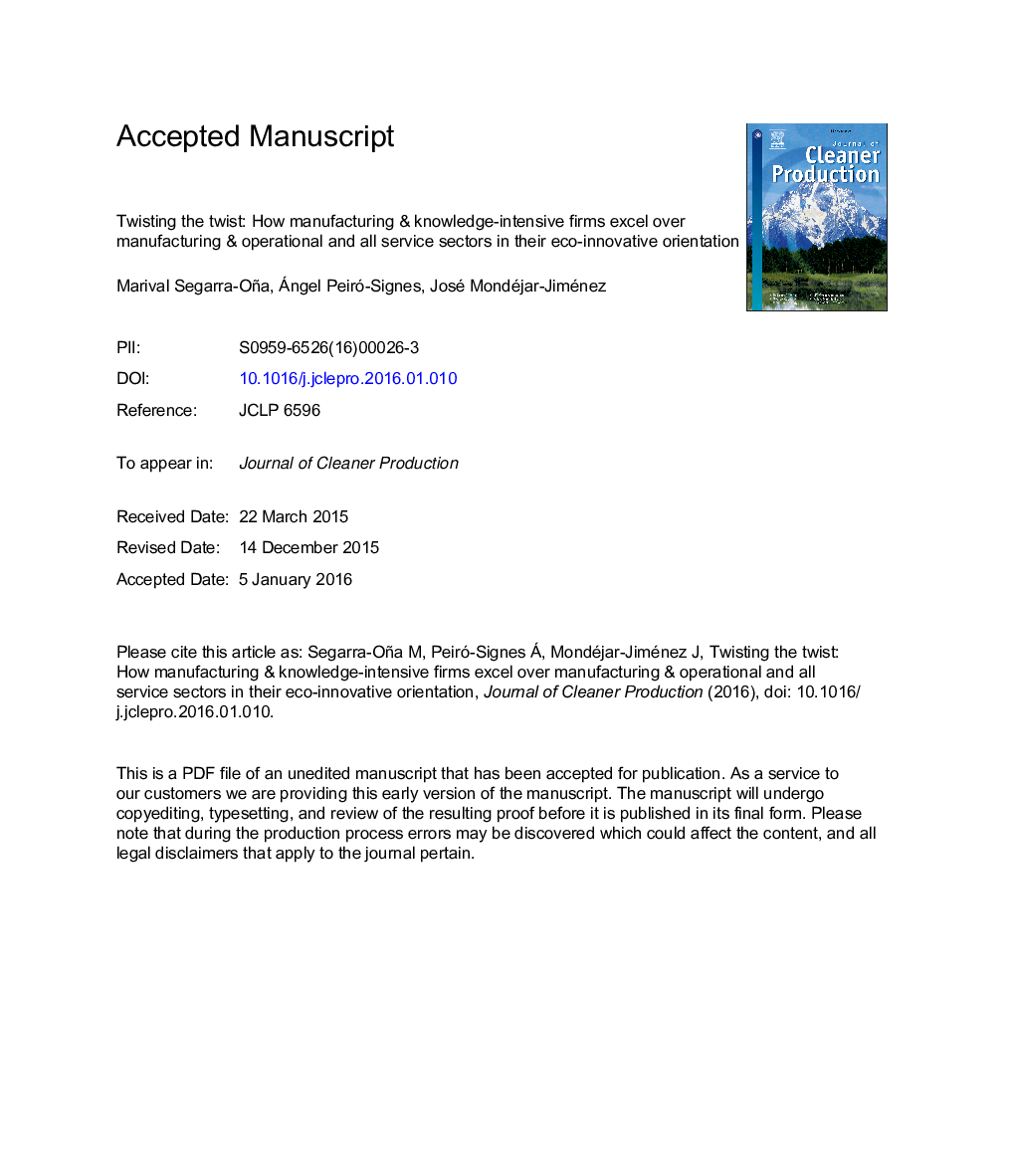| Article ID | Journal | Published Year | Pages | File Type |
|---|---|---|---|---|
| 5481579 | Journal of Cleaner Production | 2016 | 25 Pages |
Abstract
Innovation, sustainability and knowledge are outstanding concepts nowadays for firms to gain competitive advantage. There is a need to cross-seed the variables that take part in the companies' decision-making process in order to identify how firms' characteristics influence their innovative activities. In this paper, we focus on the sustainable innovations (which we call eco-innovation) and compare knowledge-based versus non-knowledge-based (operational) firms' patterns, also considering manufacturing versus service sectors. To do so we rely, theoretically, on the well-known absorptive capacity model. The method used is the PLS multigroup analysis and the sample selected consists of a secondary dataset of +5900 data points from the 2012 Innovation Spanish Panel (PITEC). Results show that, on one hand, there is no difference in the way that firms acquire and assimilate knowledge and that knowledge-intensive firms excel to transform their ability to eco-innovate. On the other hand, manufacturing firms are one step further than service firms in their eco-innovative orientation.
Related Topics
Physical Sciences and Engineering
Energy
Renewable Energy, Sustainability and the Environment
Authors
Marival Segarra-Oña, Ángel Peiró-Signes, José Mondéjar-Jiménez,
